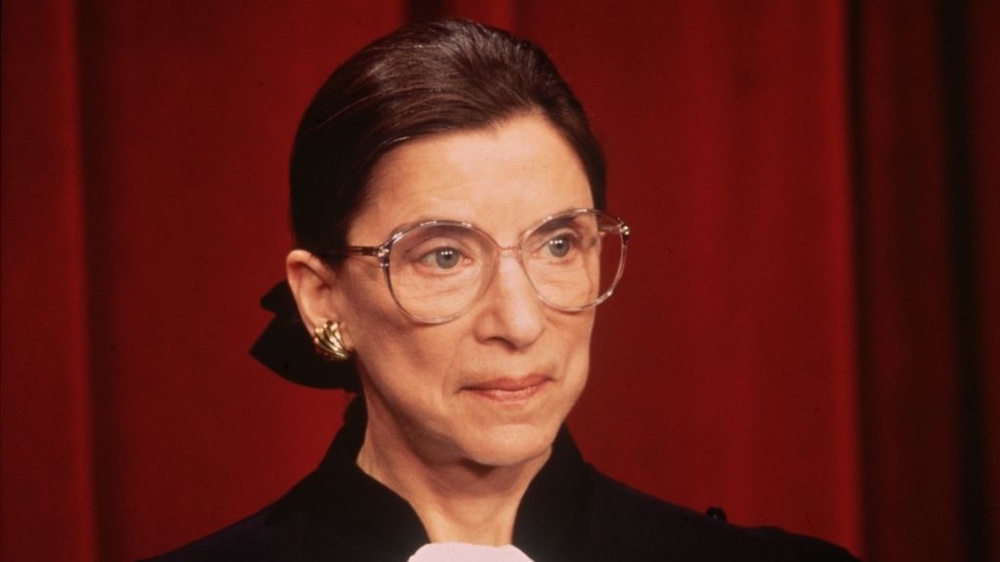If you’re interested in sharing your opinion on any cultural, political or personal topic, create an account here and check out our how-to post to learn more.
____
Supreme Court Justice Ruth Bader Ginsburg passed away at her home in Washington DC over the weekend peacefully at the age of 87, following prolonged battles with cancer. She departed this life with a legacy of remarkable achievements and fierce opinions. As the tributes, obituaries and state of emergency think-pieces regarding the Justice roll in, the way the “Notorious RBG” moniker she proudly adopted is utilized by political adversaries and allies alike is interesting.
The Justice has certainly earned a reputation over the years as a voice of dissent on a increasingly conservative court, a reputation that was enhanced greatly by her famously exercising the unconventional option of reading her dissenting opinion aloud from the dais in the Shelby Co. v. Holder decision in 2013, an extremely important case regarding the Voting Rights Act. (Something that is so relevant in this moment.) Her notoriety has grown exponentially in the social media/meme driven attention age where context is neither needed or welcome. The real questions that should be asked in this moment are: What exactly is Ruth Bader Ginsburg notorious for? What is her legacy of action and activism? Are we reducing our experience with her to a few dissenting opinions? I imagine it's hard for some to fathom the mythical guardian of liberalism on the High Court hasn’t passed away. They likely never existed.
Her ascent to the Supreme Court from Cornell University to Harvard Law to graduating Columbia Law is filled with institutional firsts and academic excellence. She was known as a trailblazing professor as well as a savvy and highly effective advocate for women rights. However, that is not the RBG we are discussing in this national moment of mourning. She actually successfully argued six (!) cases in front of the Supreme Court and worked closely with the ACLU in her role as an advocate in the 1970s. If her legacy were to extend no further, she still would be quite noteworthy. However, in the way we do, Americans have attached fantastic qualities and expectations onto mere mortals and highly fallible systems.
Ruth Bader Ginsburg was an appeals court judge on the DC Circuit Court during the Regan era. Full stop. During her tenure we saw what we now know as the groundwork for the prison industrial complex as well as the establishment of mandatory minimums and vast sentencing disparates. After being appointed by a democratic President (Carter) she would serve under two of the most conservative presidents ever — Ronald Regan and George H.W. Bush. She was not known as a bastion of liberalism on the bench during her time as an appellate judge, favoring a philosophy known as Judicial Restraint, which proposes social change come from the legislature rather than the judiciary.
In 1993 she was nominated by President Clinton and confirmed by the Senate 96-3 as a Supreme Court Justice. One would think this is where the legend of the Notorious RBG begins, but as with most things it is never that simple.
Her career as a justice was marked in the early years by vocal advocacy for women’s rights from her new post in majority opinions. Her penchant for conservative interpretations of the law and siding with her more right-leaning colleagues has left much more of an impact on the country's judicial landscape than her highly publicized dissenting opinions. She is actually by no means the most liberal of the current Supreme Court Justices. That distinction currently belongs to Justice Sotomayor. While it may satisfy our fascination with hero worship/celebrity culture, the reality of turning an Ivy League educated jurist into a champion of the resistance is still quite a stretch.
While it's true that she has represented the “liberal” viewpoint with her dissent in many cases, it is worth noting that the court's output did not reflect her influence and the past three decades have seen the country become increasingly conservative in every facet of its governance.
In many cases, Justice Ginsburg actively supported this movement, voting in favor of cases that further restricted immigration (United States v. Sineneng-Smith), empowered the fossil fuels industry and enhanced the oversight of law enforcements dealings with criminal defendants on supervised release (Mont v. United States).
If you don’t know, now you know.
As the justice herself once said, “Judges must be mindful of what their place is in the system …” In this moment of national mourning and transition, it is imperative upon all of us to seriously contemplate what impact the Justice has had and what role we want her successor to occupy. The activism, or lack thereof, that is present in Justice Ginsburg’s career will certainly loom large over the future of this country. Everyone who has invested in the “Notorious RGB” economy is now having to face the reality that heroes eventually die and their legacies are complicated.
The late, great Notorious B.I.G. once said, “You’re nobody until somebody kills you.” In RBG’s case, she was indeed someone who lived a remarkable life. However, it is entirely possible that she is not who popular culture would like to pretend she is. It's important to have an understanding of the past in order to plan the future, and it would be in everyone's best interest to fight as hard as necessary for however long it takes to turn her dissent into action.
